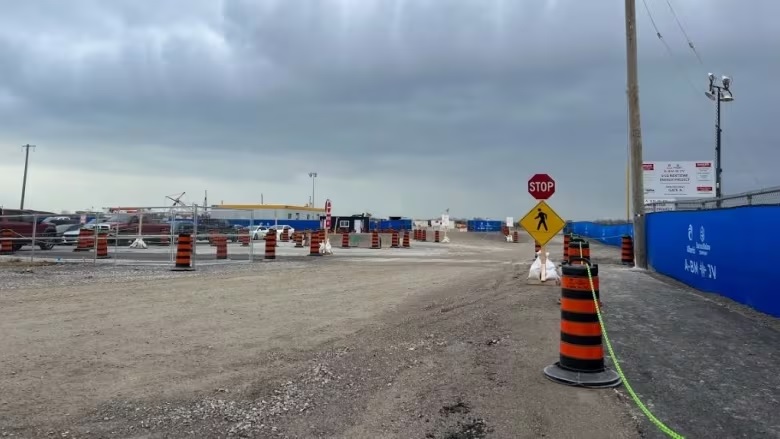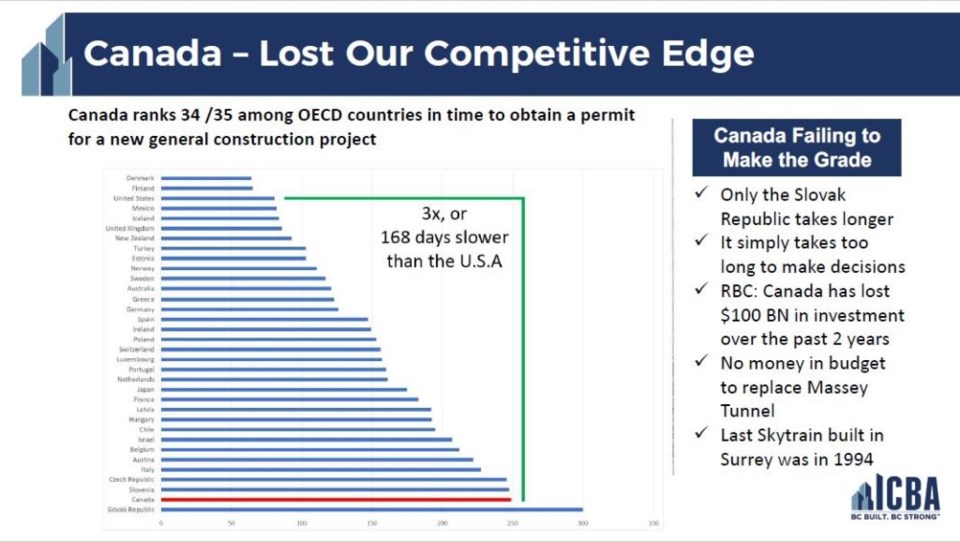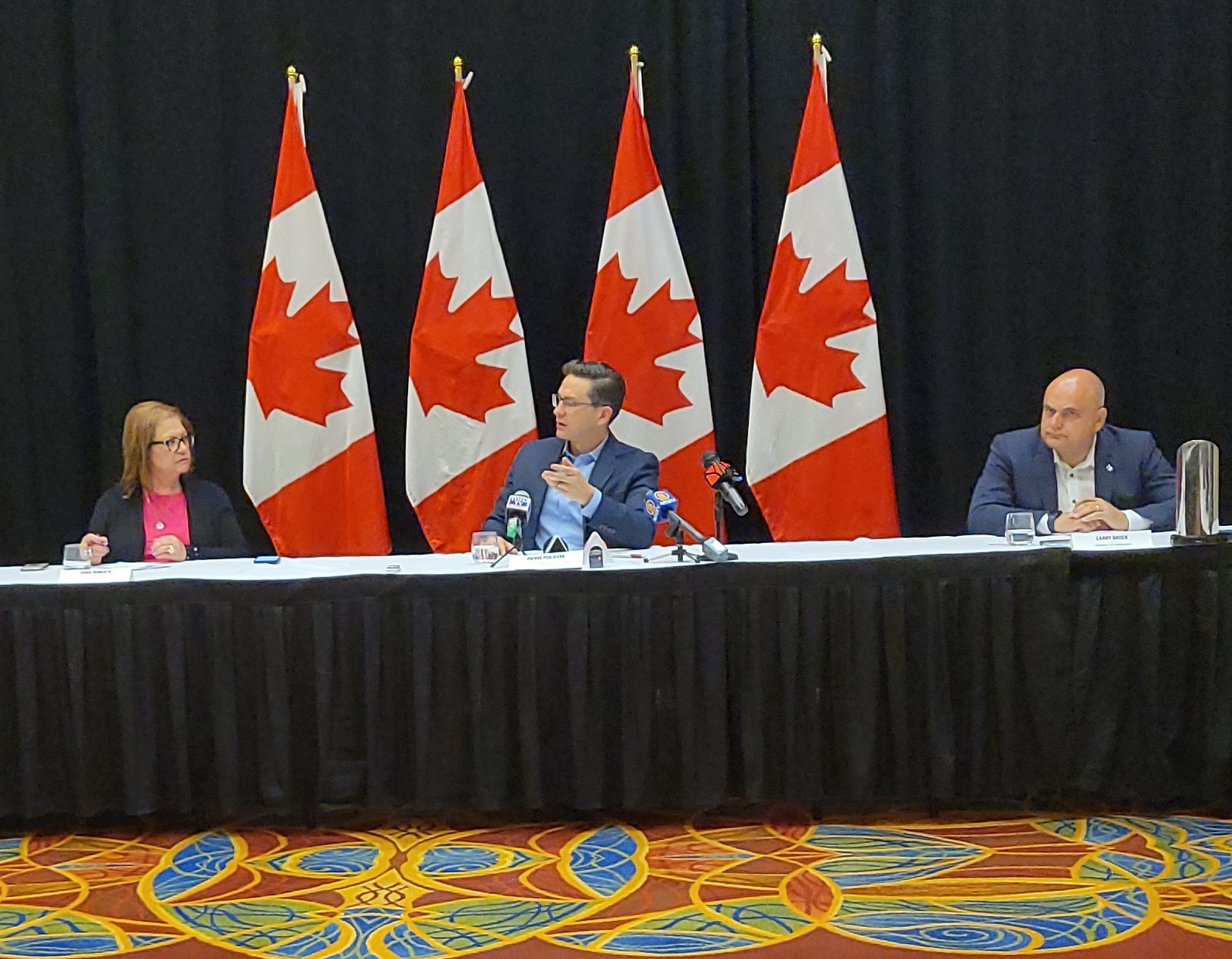Pierre Poilievre, Leader of the Conservative Party and the Official Opposition, talks at the ethnic media roundtable in Toronto on Wednesday, May 24th. Conservative MPs in the photo: (L-R) Anna Roberts (King—Vaughan) and Larry Brock (Brantford—Brant). Photo: Yuri Bilinsky
Yuri Bilinsky, New Pathway – Ukrainian News.
On April 21, St. Thomas, ON hosted Prime Minister Justin Trudeau and Ontario Premier Doug Ford, who unveiled the electric vehicle battery manufacturing plant that will be built there by Volkswagen, Europe's largest automaker.

Prime Minister Justin Trudeau embraces Minister of Innovation, Science and Industry Francois-Philippe Champagne during a news conference to announce details on the construction of a gigafactory for electric vehicle battery production by Volkswagen Group's battery company PowerCo SE in St. Thomas, Ontario on April 21. PHOTO BY REUTERS/CARLOS OSORIO
The deal would help build a large plant able to make enough batteries for up to one million electric vehicles per year and employ up to 3,000 people directly. The spinoff jobs at companies that would source the supplies for this plant could amount to 30,000.
The deal between Volkswagen and the federal government could involve close to $14 billion in upfront capital cash and subsidies for produced batteries. The subsidies are contingent on the battery production subsidies introduced in the Inflation Reduction Act in the United States. If the American subsidies are discontinued or reduced, the same will happen to the Canadian subsidies.
The promised subsidies have caused criticism as to the credibility of estimates of the number of jobs to be created and the cost per created job to the taxpayer.
The deal and the subsidies involved could also endanger the prospects for the Windsor, ON based electric vehicle battery plant, which is currently under construction by automaker Stellantis and LG Energy Solution. It became known last year that Ottawa's contribution to the Windsor plant would be $500 million. Stellantis and LG Energy Solution have begun implementing “contingency plans,” accusing Ottawa of reneging on the agreement regarding the upcoming plant. Some sources say that the federal government has promised Stellantis to match the funds spent on the Volkswagen plant and that Stellantis has called a timeout on construction until the government delivers on the promise.

The site of the new EV battery plant in Windsor. The plant is due to open in 2024. (Jennifer La Grassa/CBC)
According to Prime Minister Justin Trudeau, the subsidies have not been the only deciding factor in the deal. At the Council on Foreign Relations in New York on April 28, he said that a number of U.S. jurisdictions offered Volkswagen “way, way more money” than Canada did to secure Volkswagen's new battery plant. But Canada prevailed, he said, because of its clean energy supply, educated workforce, critical minerals riches, and investments in the middle class.
Following up on his earlier criticism of the deal, the head of the Official Opposition, Pierre Poilievre, at the ethnic media roundtable, which took place in Toronto on May 24, was critical of industrial subsidies as such. In his response to NP-UN's question, he said that Canada needs “an economy that attracts business without needing massive government handouts.”
Poilievre said the information is needed about the payback period for the Volkswagen project. He provided the example of the government's buyout of Texas-based Kinder Morgan's Trans Mountain pipeline: “We can't take Justin Trudeau's word because he's done these big industrial subsidies before – the Trans Mountain pipeline was supposed to cost $7 billion. Well, it's already cost over $30 billion and it's not done. And Kinder Morgan took our taxpayers' money and used it to build pipelines in Texas.”
The answer, in the long run, is to make Canada “an attractive place to build stuff,” said Poilievre. He provided the statistics that Canada is now the second slowest place in OECD to get a building permit (250 days as compared to 82 days in the U.S.), and noted that investment goes to places where it can build fast.

Secondly, Poilievre said that Canada's tax system drives money, production, and jobs out of the country rather than brings them home – over $700 billion more of Canadian money is invested abroad than invested in Canada by foreign investors. He provided the fact that even Canadian Pension Plan has invested more abroad than at home.
“How do we get the return on investment higher in Canada than abroad? Make it the fastest place in OECD to get a building permit, make the lowest cost administrative burden, and reform the tax system to incentivize home-grown production rather than exporting our money abroad,” said Poilievre.
Share on Social Media





































